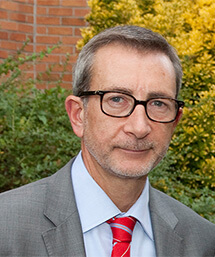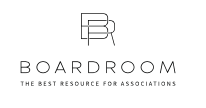The European Organisation for Research and Treatment of Cancer shares how it identifies and trains ‘rising stars.’
Dr. Denis Lacombe is director general of the European Organisation for Research and Treatment of Cancer (EORTC), an independent cancer research organisation whose mission is to coordinate and conduct international translational and clinical research to improve the standard of cancer treatment. He answered Boardroom’s questions about how the association caters to younger members.
By Rémi Dévé

Dr. Denis Lacombe
How do you connect and recruit younger members?
EORTC has access through its membership to very large networks across Europe. Key opinion leaders are members of the EORTC. Aiming at younger clinical investigators with some degree of maturity, we have identified “rising stars” in partnership with officers of EORTC Disease Oriented Groups (DOG) based on preliminary track records and publications. Altogether, we have identified 35 Early Career Investigators (ECI) across nationalities, disciplines, and tumor types.
What do you think younger members’ specific needs are? Do they have a “typical” profile?
Indeed, selected people have been identified based on their motivation to ask the extra question and run the extra mile. They are curious about new knowledge and how to transform it … they are not afraid to take challenges forward and [they] have the autonomy and drive to propose pragmatic solutions while sticking to their objective of patient-centric benefits.
They need to receive comprehensive training on how to become leaders in a rapidly evolving society, how to run complex multidisciplinary research internationally, and [how to] set up fruitful cooperation among stakeholders. How to navigate across European regulations and policies is also a key element.
How do you engage them? How do you make them feel concerned and involved?
We have built a comprehensive programme running over two years where they receive training to acquire leadership skills. In addition, they are given autonomy to design the future of our organisation around critical themes which are central to our scientific strategy. Their proposal will be presented to our board. They are invited to join hands-on activities ranging from courses to participating in committees. But mostly, there are five three-day in-person sessions through which the full scope of challenges are presented and discussed. And debates are organised with representatives of key stakeholders. The programme has been registered for continuing medical education (CME). But above all, this is a very interactive [way] to meet across disciplines and nationalities to build the European cancer clinical research network for tomorrow.
Can generational differences be an issue within the culture of the association?
Yes, indeed. Senior [members] also need to learn to associate with the younger generation. There is an EORTC requirement for each research protocol to have an ECI as co-principal investigator. … We also need to take into account the expectations of the younger generation for a more balanced professional and private life.
This article was contributed by Boardroom, a Brussels-based magazine covering the work of globally based associations. It was edited for use by Convene.


